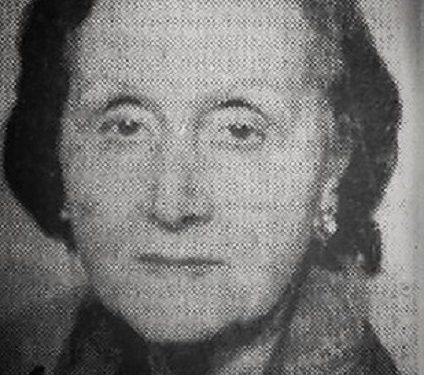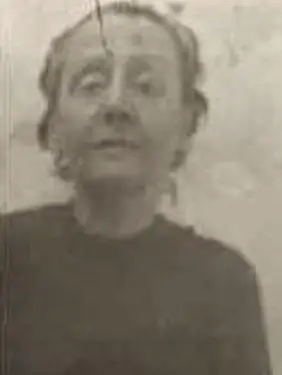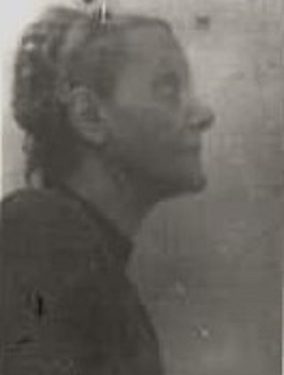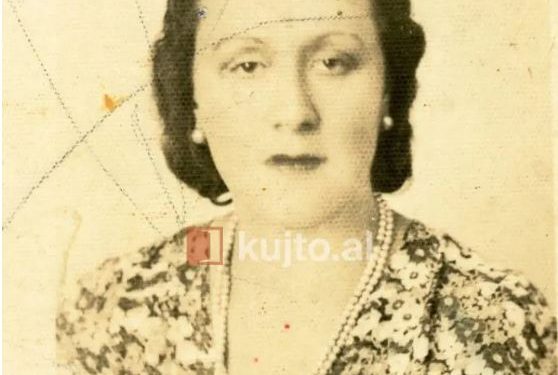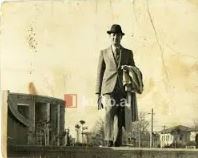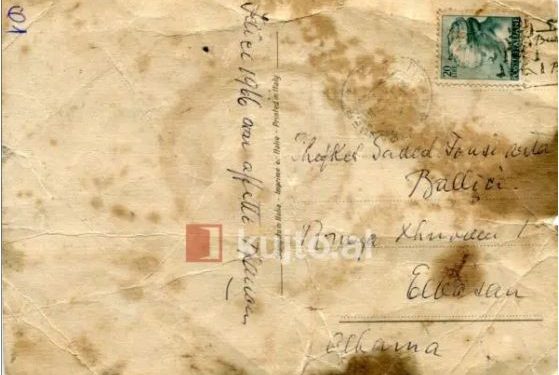Memorie.al / The investigative journalist, Blanka de Corvin, who had traveled Europe and spoke five languages, could have been a respected professional in any country, but in communist Albania, she immediately became suspected as a “spy for the Anglo-Americans”. . With these unproven accusations, she was arrested, tortured and sentenced to 10 years in prison, while her husband, who graduated in the West, was fired from his job and left in misery. The chilling destruction of two lives, which had started so well…!
Blanka de Corvin’s life can easily be turned into a novel, where the heroine and her fate do not need to be changed to make them more attractive or striking. And not even the name, resounding and unmistakable which, moreover, seems to be the product of an artistic baptism on the part of the author, who recognizes the life of his character: a life composed of two parts as contrasting as white with the raven.
Blanka was born in Istanbul, to an Austrian father and a Russian mother. His father was a diplomat and most likely that October of 1900, when Blanka was born, he was in Turkey, with one of his diplomatic missions. The cosmopolitan element that marked her life since birth, Blanka would develop even more during the following years also due to her profession as a journalist, visiting many countries: her own Austria, but also Italy, Germany, Yugoslavia and learning several languages: a total of five, together with Albanian, which became the language of love for him, but not only…!
He met Adem Balliçin in Rome, although some sources say in Vienna. At that time, the journalist was the widow of an Austrian count. The young man from Elbasan had left his hometown at an early age, to complete high school and then university.
Although he came from a family of musicians, he had chosen to study Finance, but surely music will not have been a silent factor to bring him closer to Blanka, who was very fond of the arts in general, music and painting in particular. Even in Albania, she was known for her talent in painting, and her husband’s family members also remember her playing the piano, in the early years, when her life still had music.
According to a descendant of the Balliçi family, who has dedicated an article to the story of Adem and Blanka, they were married in 1942. For several years, Ademi was head of the Budget and Monopoly in the Ministry of Finance and, together with Blanka, lived in the house built in front of the American legation, on “Elbasan Street”.
Adem Ballici
It was a big house, about a thousand square meters, that they would enjoy only a few years. When the communist regime was established in the country, as researcher Kastriot Dervishi writes, this house was rented to the UNRRA mission and after 1947, the families of communist officials lived there. Meanwhile, her masters had started the path of suffering, a part of which, moreover, they would cross alone.
Blanka’s survival
Blanka was arrested on October 28, 1946. He was accused of being part of Maliq’s “saboteurs” agent group. Her role, in this fictional network, was that of liaison between the engineers working on draining the swamp and Harry Fultz. They were convinced of this involvement, however, as Kastriot Dervishi, Delo Balili investigator writes; “tortured” Blanka madly, to prove the accusation with her own words.
The husband’s great-granddaughter writes that Blanka was immersed in a barrel of ice water in the middle of December and this was not the only torture. And yet she resisted. Many people have surrendered, agreed to sign any lie, just so that the torture would end for a little while, convinced that their life was over for good, but Blanka did not reach that point. Maybe faith in God made her not break, while God took care that her body also resisted.
Maliqi’s trial had been going on since November 1946, when five people were executed, including Zyrika Mano, Blanka’s friend, who was not brought out in that trial because she refused to have anything to do with the group being judged. In conclusion, the investigators compiled the final report on January 16, 1948. “It is sent to the General Prosecutor’s Office. “Blanka has rejected all the accusations, not accepting anything from what the mentioned report by State Security has held”, writes Kastriot Dervishit. However, she was not released. It was clear that Blanka’s sentence was a definite request that had to be met at all costs. In short, by concocting another charge.
In conclusion, on December 16, 1948, two years and two months after his arrest, he was sentenced to 10 years in prison for not reporting the weapon. She remained in prison for another four years and was released with the amnesty of November 28, 1952, after she had taken the trouble to write a letter to the dictator, Enver Hoxha, closing it with a prayer, to allow her to return to her husband. Finally, Blanka and Ademi were reunited. Of course, their lives were much different now. They themselves had changed even more, but at least they were together.
Adam’s silent punishment
Blanka had much more difficult struggles during those six years, but they had not been easy for Adem either. He was fired and taken to Sukthi’s farm as an accountant. He worked there for a year and was fired again. He had no home, no assets and now no job. This would be the most severe punishment for Adam.
From the day the communists took power, based on the information of his family members, Ademi worked for only one and a half years: one year in Sukth and 6 months in the Library of Elbasan, and then, the financier who graduated in the West, would be a unemployed, living thanks to the support of his brother’s family.
Even Blanka would find warmth in this family, now that everything else around had become threatening and hostile. And yet, although ruined physically and mentally, as shown by the children and grandchildren of Adam’s brother, this woman did not lose her generosity. She didn’t even lose faith in God and now, thinking she was free again, she returned to practicing religion, which was still allowed in Albania.
Blanka often traveled from Elbasan, where she lived with her husband, to Tirana, to go to the Catholic Church, but very soon these trips would be interpreted as the movements of an agent, as all her trips to different countries had been interpreted before. , as a journalist.
The documents discovered by the well-known researcher and historian Kastriot Dervishi show that in 1960, Blanka was again being processed as; “English agent”, while the husband was being monitored as; “German agent”. For their ever more empty lives, ever more complicated scenarios were built in the files of the State Security. On December 25, 1962, Ademi passed away. A very heavy blow for Blanka, which was followed by an even bitterer blow. The Communists accused him, as; “husband killer”.
Once again, Blanka had to face false accusations, but this was the worst of all. Blanka was arrested for the second time. Adem’s body was subjected to legal expertise. His relatives had to find, amidst the pain, the strength to protect the innocent Blanka. After they found no evidence for the macabre accusation, Blanka was allowed to leave the dungeon and Ademi was escorted to the last apartment, two days after he died.
After a year, Blanka returned to her country. He managed to meet his mother again and restore contact with the two sisters, one living in Argentina and the other in Croatia. In 1965, for Christmas, a postcard arrives at the family of Shefqet Balliçi, Adem’s brother. Blanka sent it.
It had written the names of the recipients and only one line behind the postcard, most of which was blank. More than a greeting card, it was a memory card, for her and their Adam, who had passed away three years ago on December 25th.
Blanka lived another 20 years. In the winter of 1985, she died at the age of 85, in a car accident during a trip to Zagreb, to visit her sister.
She had returned to her previous life, part of which was traveling, crossing borders, meeting relatives in other countries, but of course she herself was no longer the same. Memorie.al
Taken from Kujto.al
Adapted by A. Cano




